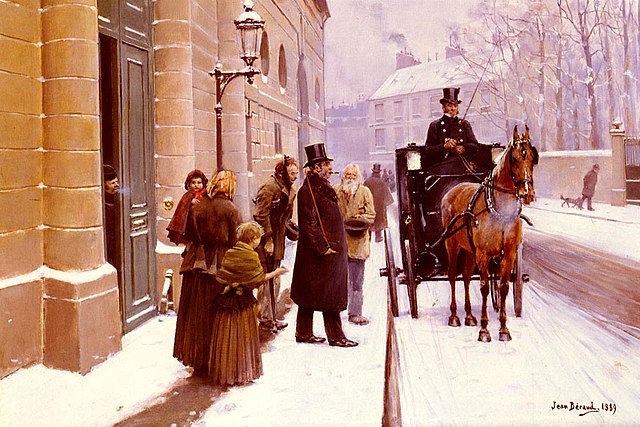The intelligentsia is a status class composed of the university-educated people of a society who engage in the complex mental labours by which they critique, shape, and lead in the politics, policies, and culture of their society; as such, the intelligentsia consists of scholars, academics, teachers, journalists, and literary writers.
In Russia, the writer Pyotr Boborykin defined the intelligentsia as both the managers of a society, and as the creators of society's high culture.
The surgeon Ludwik Rydygier and his assistants. (Leon Wyczółkowski)
Vissarion Belinsky
"Evening Party" by Vladimir Makovsky (1897). Three generations of Russian intelligentsia discuss current issues.
The bourgeoisie are a class of business owners and merchants which emerged in the Late Middle Ages, originally as a "middle class" between peasantry and aristocracy. They are traditionally contrasted with the proletariat by their wealth, political power, and education, as well as their access to and control of cultural, social and financial capital.
La sortie du bourgeois, painted by Jean Béraud (1889)
The 16th-century German banker Jakob Fugger and his principal accountant, M. Schwarz, registering an entry to a ledger. The background shows a file cabinet indicating the European cities where the Fugger bank conducts business (1517).
Karl Marx
Clothing worn by ladies belonging to the bourgeoisie of Żywiec, Poland, 19th century (collection of the Żywiec City Museum)








